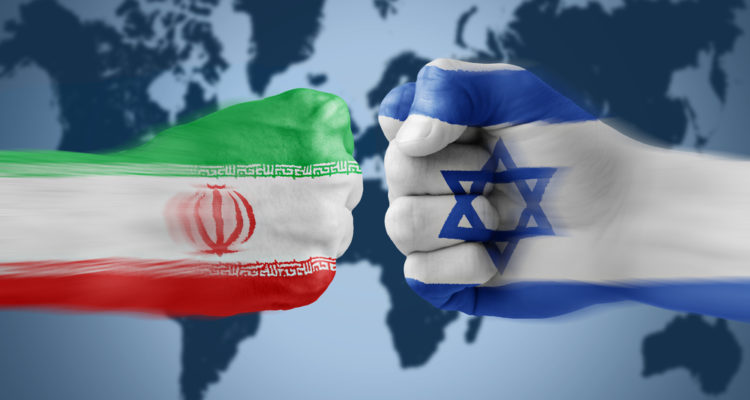Israeli analysts agree that tensions have risen dramatically in recent days, but offer differing appraisals of the likelihood of the crisis leading to a full military conflict.
By: Steve Leibowitz, World Israel News
The airstrike widely attributed to Israel, against the Iranian T-4 air base in Syria on Monday has sparked a ratcheting up of warlike rhetoric from Iran.
Jerusalem is maintaining its official policy of ambiguity regarding the airstrike, neither confirming nor denying that it was behind the attack. The US confirmed that Israel was responsible, while Russia broke its custom of not commenting and said the attack was carried out by two Israeli F-15 fighter jets, firing eight missiles at the Tiyas base.
Fourteen people were reportedly killed in the strike and according to the Iranian Revolutionary Guard Corps (IRGC), at least seven of the group’s members were among those killed in the alleged Israeli strike, including one high ranking officer. This is only the second such admission by Iran. The first was the 2015 case of an IRGC general killed in a 2015 strike directed against Hezbollah leader Jihad Mughniyeh, also attributed to Israel. Following the 2015 strike, Hezbollah exacted its revenge 10 days later by firing anti-tank missiles at two IDF jeeps, killing two IDF soldiers and wounding seven more.
Iranian officials are warning that the latest alleged Israeli strike “will not remain without response.”
Dr. Mordechai Kedar from Bar Ilan University told World Israel News (WIN) that “War is a growing possibility. The actions of the past few days could lead to warfare in Syria and could even involve long range missiles. Iran will never move from its determination to be rid of Israel altogether. The US is not backing down from a potential confrontation with Iran. Nobody wants war, but sometimes that is the only solution for dealing with aggression.”
Dr. Eran Lerman from the Jerusalem Institute for Strategic Studies is a leading Israeli analyst on Iran. Lerman told WIN that while the potential for a wide scale military conflict between Israel and Iran is “worrying” he does not view the potential for conflict as imminent. “Iranian is in no position to carry out attacks against Israel beyond the kind of probing they have done with drones and their current assets in Syria are not very meaningful in confronting Israel. They know that Israel is a formidable military power and will be careful not to place those assets and those of the Assad regime in danger. They want to avoid an escalation at this time.
According to Lerman Iran would be hard pressed to mobilize its Hezbollah allies in Lebanon. “Hezbollah has been very careful to avoid conflict because they are still deeply engaged and are bleeding heavily from their involvement in Syria. Hezbollah is facing growing animosity in Lebanon over its Syria policy. If Iran gave Hezbollah a direct order to launch an assault on Israel they would have to comply, but they would only use that card in a doomsday scenario, like if they were facing a major combined attack from the US and Israel. They will not use their assets before then. Israel is very carefully weighing its moves and the strike in Syria reflects a calculated policy of resisting an Iranian buildup in Syria while not forcing an Iranian response.
Dan Diker from the Jerusalem Center for Public Affairs points out that the Iranian regime has effectively seen itself at war with Israel since the Islamic revolution in 1979. “The world is now coming to understand the immediate existential danger from Iranian proxies in Syria and Lebanon. Tens of thousands of Iranian operatives are entrenched in Syria building military capabilities not far from the Israeli border,” he said.
Diker does not deny that Israel may be getting closer to a direct confrontation with Iran. “For nearly a decade Israel has set a clear red line security policy and will act forcefully whenever Iran tries to cross the line and move toward the regional hegemony that it seeks. We may be getting closer to direct confrontation with Iran. They have stepped up presence in Lebanon and Israel is stepping up its response accordingly.”





